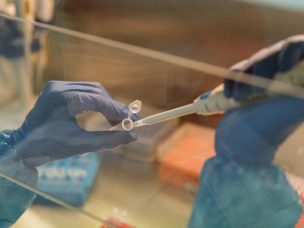Social determinants of health such as immigration status, race/ethnicity, neighborhood disadvantage, socioeconomic status, social network, and social support have previously been examined in relation to prostate cancer. This study, published in Prostate International, provides a comprehensive analysis of social factors that can influence prostate cancer incidence, stage at diagnosis, and survival.
The study relied on bibliographic searches of previous research on this topic from 1970 to 2019. After reviewing 833 published articles, only 17 met the study criteria. The researchers found that worse prostate cancer outcomes were more common in patients dealing with immigration status, lack of education, poverty, and social isolation.
Although not all of the studies summarized exhibited the same characteristics, the researchers concluded that there is sufficient evidence that social determinants of health play some role in cancer survival. They concluded that intervention methods that take social determinants of health into account are essential in the ongoing fight to address disparities in cancer outcomes [1].
Source:
[1] Coughlin, S. S. (2020). A review of social determinants of prostate cancer risk, stage, and survival. Prostate International, 8(2), 49–54. https://doi.org/10.1016/j.prnil.2019.08.001










